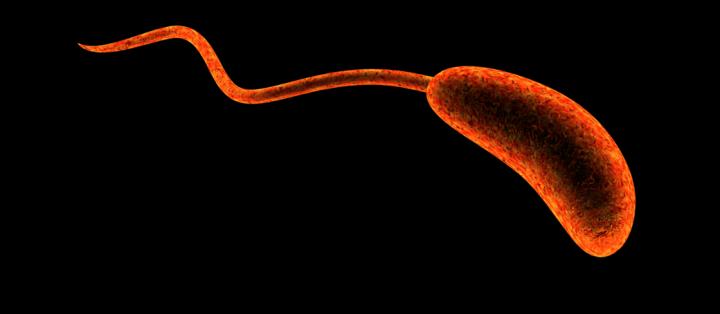Not everyone exposed to infectious diarrhea-causing bacteria gets sick

Credit: Centers for Disease Control and Prevention
Cholera can kill within hours if left untreated, and it sickens as many as 4 million people a year. In a new article in the journal Cell, researchers describe how gut bacteria helps people resist the disease.
Bacteria live everywhere on the planet — even inside the human body. UCR microbiologist Ansel Hsiao studies whether the bacteria living in our bodies, collectively known as the human microbiome, can protect people from diseases caused by external bacteria such as Vibrio cholerae, which lives in waterways and causes cholera.
Hsiao’s team examined the gut microbiomes from people in Bangladesh, where many suffer from cholera as a result of contaminated food, water and poor sanitation infrastructure. “When people get sick, the diarrhea gets flushed into water systems that people drink from, and it’s a negative cycle,” Hsiao explained.
His team wanted to see whether prior infections or other stresses, like malnutrition, make people more vulnerable, as compared to Americans who don’t face these same pressures.
The findings surprised the group, which expected stressed Bangladeshi microbiomes would allow for higher rates of infection. Instead, they saw infection rates varied greatly among individuals in both populations, suggesting susceptibility is based on a person’s unique microbiome composition — not the place they’re from.
Vibrio cholerae spends most of its time outside of humans in aquatic environments. It doesn’t usually encounter bile, which mammals produce to help digest fats after a meal.
“Because bile is specific to the intestines of humans and animals, many microorganisms, including cholerae, have evolved ways to deal with it,” Hsiao said.
Once Vibrio cholerae enters a body, the presence of bile and lack of oxygen in the gut triggers previously dormant genes that enable it to survive in its human host. These genes are responsible for cholera’s virulence, helping Vibrio cholerae attach to intestinal walls and cause diarrhea.
Hsiao’s team identified one bacterium in the human microbiome, Blautia obeum, that can deactivate the cholera bacterium’s disease-causing mechanisms, preventing it from colonizing the intestines. They also figured out how this feat is accomplished.
Blautia obeum produces an enzyme that degrades salts in bile, which Vibrio cholerae uses as signals to control gene activity. When these bile salts are corrupted, the cholera-causing bacteria does not receive the signal to activate the dormant genes that cause infection.
Since it’s become clear that more Blautia obeum makes people less susceptible to cholera, a focus of future studies will be how to increase its presence in the gut. “We are extremely interested now in learning which environmental factors, such as diet, can boost levels of obeum,” Hsiao said.
Similar studies are also underway with regard to the virus causing another global pandemic — SARS-CoV-2. Hsiao is collaborating with several groups trying to understand how the microbiome changes with COVID-19 infection.
“One day, we may also understand whether and how the microbiome affects COVID-19 and makes people resistant to other illnesses we don’t currently have treatments for,” Hsiao said.
Media Contact
Jules Bernstein
[email protected]
Original Source
https:/
Related Journal Article
http://dx.




